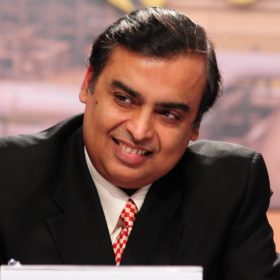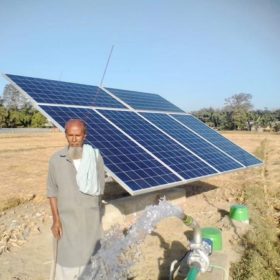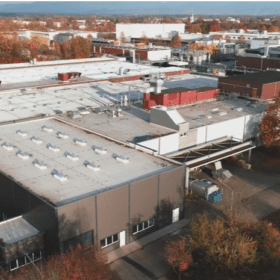PLI Scheme for battery cell manufacturing receives bids for 130 GWh of capacity
The production-linked incentives scheme for advance-chemistry battery cell manufacturing received an encouraging response with bids received for 2.6 times the 50 GWh manufacturing capacity to be awarded.
Reliance Industries commits over US$75 billion for green energy projects in Gujarat
The Mukesh Ambani-led diversified business conglomerate has agreed to invest INR 5 lakh crore (US$67.6 billion) in building 100 GW of renewable energy capacity and green hydrogen eco-system in the State. It will also invest INR 60,000 crore (US$8.1 billion) in setting up manufacturing facilities for new and renewable energy equipment including solar modules, electrolyzers, energy-storage batteries, and fuel cells.
Daily news roundup: Mecwin and KVG Bank partner on solar pump finance, Adani’s new energy arm
Bengaluru-based Mecwin Technologies Ltd and Karnataka Vikas Grameena Bank (KVGB) have partnered to finance solar pump-sets for farmers. Adani has formed a new energy arm called Adani New Industries Limited (ANIL).
Reliance Industries to acquire sodium-ion battery provider Faradion
Reliance Industries said its solar unit will buy UK-based sodium-ion battery technology provider Faradion for GBP100 million (US$135 million) including debt, as the Indian conglomerate pushes forward with its ambitious plan to move into the renewable energy industry.
Exide Industries to set up gigawatt-scale Li-ion cell manufacturing plant
The lead-acid battery major, which is into lithium battery assembly in a joint venture with Swiss firm Leclanche, will set up a multi-gigawatt lithium-ion cell manufacturing plant as it strives to become more cost-competitive and better serve its customers.
Building battery storage systems in India
Nexcharge, a joint venture of India’s largest lead-acid storage battery manufacturer, Exide Industries Limited, and Swiss Lithium-ion battery manufacturer Leclanché, has fully automated assembly lines of li-ion battery packs, modules, and cell testing labs in Gujarat. Ketan Chitnis, vice president-stationary BU, tells pv magazine the government’s PLI Scheme is a major incentive for attracting investment into Li-ion cell manufacturing.
Vedanta acquires nickel and cobalt producer Nicomet
The Mumbai-headquartered natural resources company has acquired Goa-based Nicomet, a producer of cobalt, nickel, and their derivates in India, as it looks to capitalize on the electric vehicles and energy storage boom.
Electric mobility startup Matter to invest INR 1,500 crore in Gujarat
The Ahmedabad-based technology startup has committed to funding INR 1,500 crore in electric vehicles and energy storage over the next five years in the state.
Around 20 companies show interest in 50 GWh battery cell tender under PLI Scheme
The pre-bid conference for the 50 GWh battery storage tender under the production-linked incentive (PLI) scheme saw the participation of around 20 prospective bidders. The conference was organized by India’s ministry of heavy industries to discuss and address the bidders’ queries.
Sustaining the battery storage supply chain
Noida-headquartered Lohum plans to expand its integrated lithium-ion battery manufacturing and recycling facility in India to 3 GWh and expand into the US with its first facility. Co-founder Justin Lemmon speaks to pv magazine about how their operations in India will solve the battery supply chain and cost challenge for the nation’s electric mobility and renewable energy ambitions.














